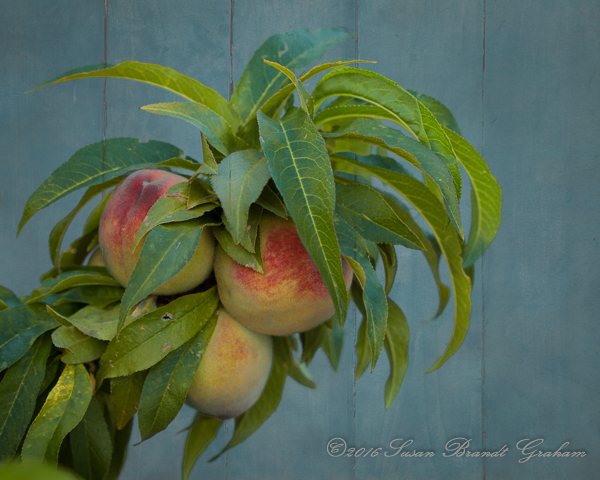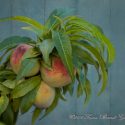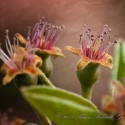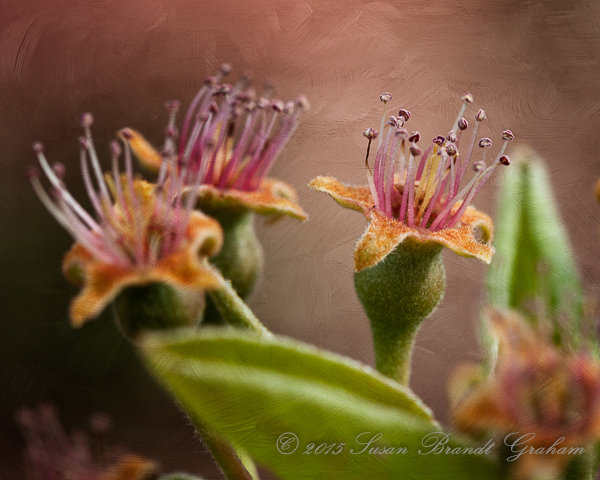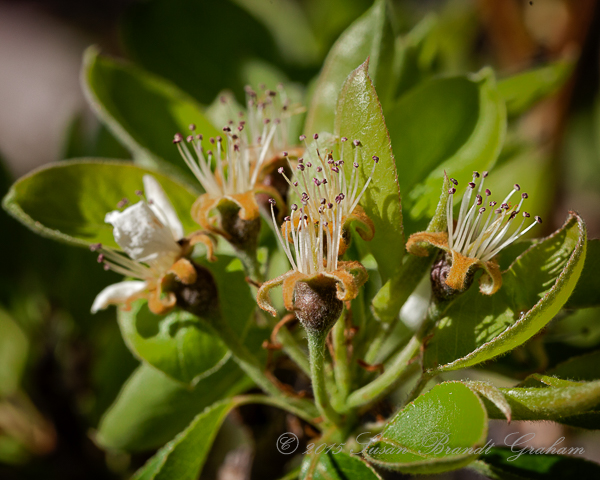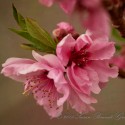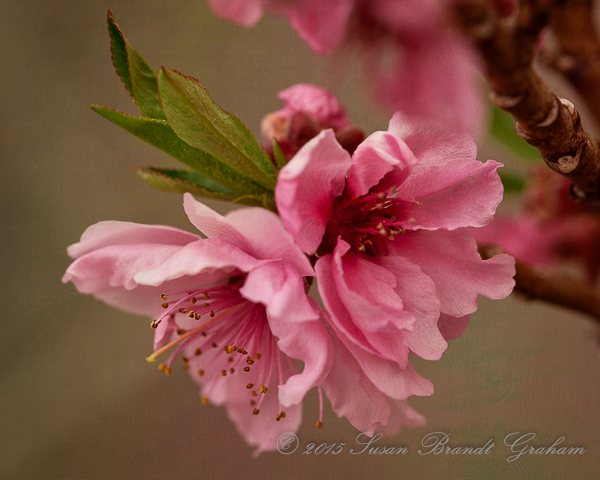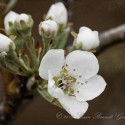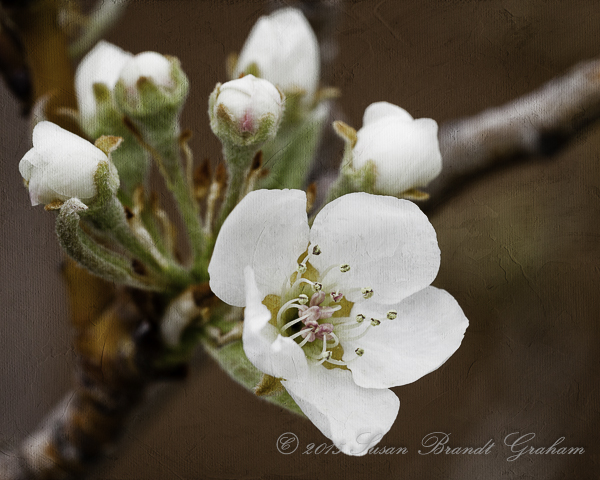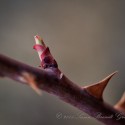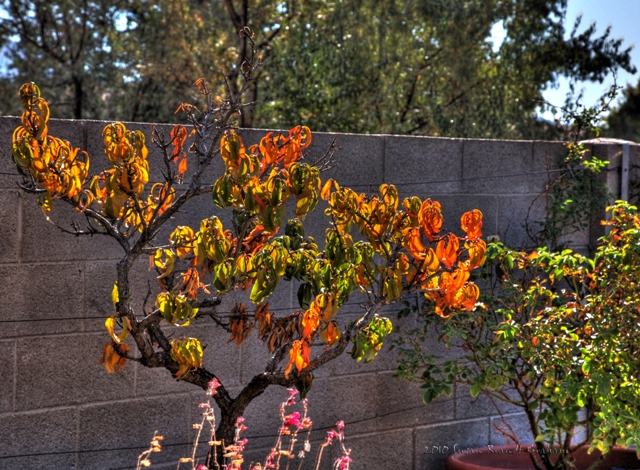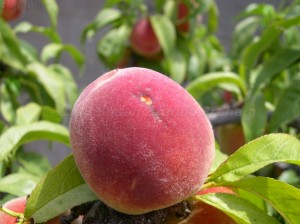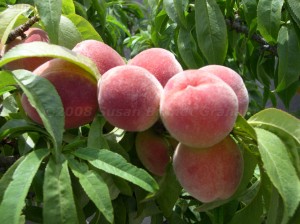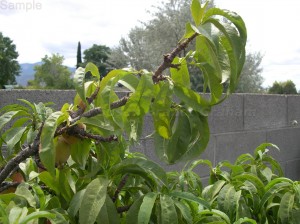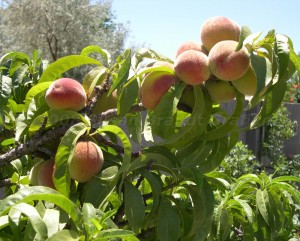Spring Too Early? We Won’t Know until Summer
Spring. Can it ever be too early? As the Northeast is buried under record total snowfall for a winter, Albuquerque has been enjoying a stretch of warm, sunny, windless days, with highs hovering around 70°F. It is glorious just to be out and enjoying what many – including me – would describe as “perfect weather.”
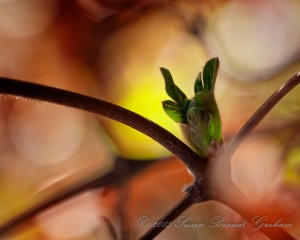
Clematis putting on growth in early February
Early growth on my clematis vine, growing as a companion plant with my rose ‘Mermaid.’
The question for a gardener, though, here in the High Desert, is, “can spring be too early?” That is a question that cannot be answered until late May! Why? The average last frost-free date here is in mid-April. If plants have already sprung forth with new growth, the tender new growth can die. One year we have a very late freeze in mid-May, and by that time the roses already had much new growth, buds, and some were actually blooming. That freeze killed back much of the new growth, and the Spring Rose Show of the Albuquerque Rose Society was pretty small that year. Along with the show, we had an Arrangement Judging School (taught by Lew Shupe and Gary Barlow!) attended by rose lovers from all over the Pacific Southwest District. The only roses that year I had to donate to the school for practice arrangements was ‘Betty Boop.’ Although that is the latest killing freeze I have experienced in my part of Albuquerque, I have not forgotten it!
Then there are the fruit trees. I have the dwarf peach ‘Bonanza,’ a fruit tree I truly love for many reasons. But, it is an early bloomer, and some years we get a freeze after the bloom and no peaches will be harvested that year. I grow it for many reasons besides the peaches, but I still prefer the years when peaches form. 🙂 I also have two pear trees: one that produces pears people like to eat, and the pollinator pear that produces pears the birds like to eat. Win-win for all! In years with late freezes, after the pears trees have bloomed, the tree with the fruit for people will not produce. I have to say, the pollinator pear is tough – the birds nearly always have their fruit produced.
-
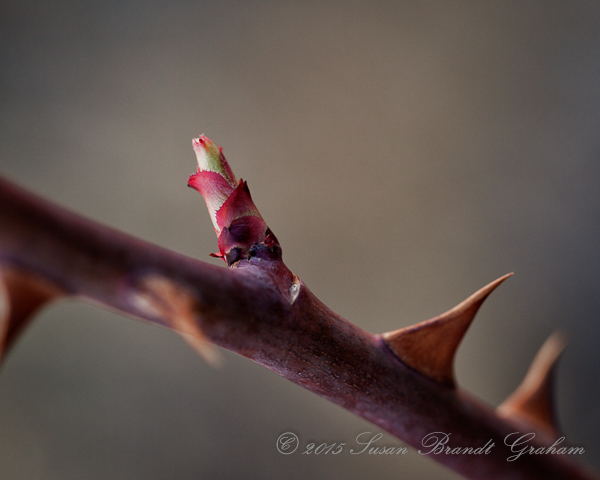
-
The grandiflora ‘Queen Elizabeth’ beginning to sprout out in early February
-
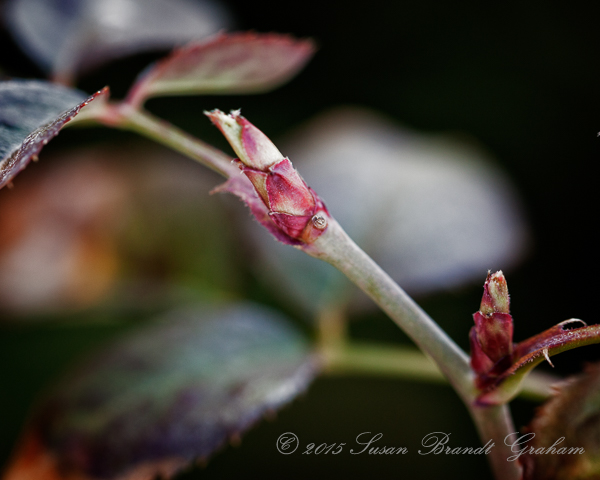
-
Rose ‘Betty Boop’ spontaneously producing growth in early February
-

-
Swelling buds on dwarf peach ‘Bonanza’ in early February
-
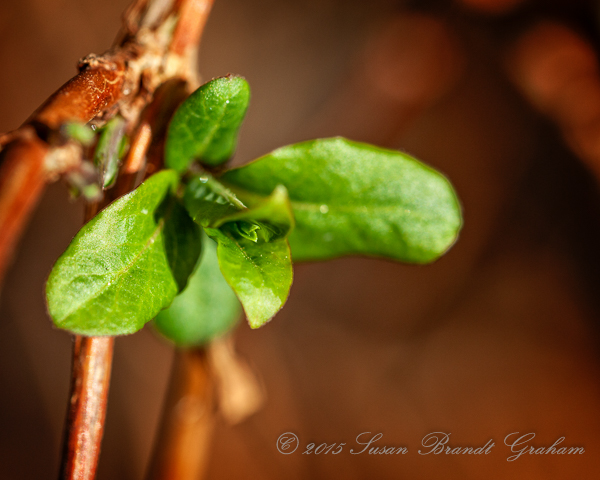
-
Honeysuckle with early spring growth
-
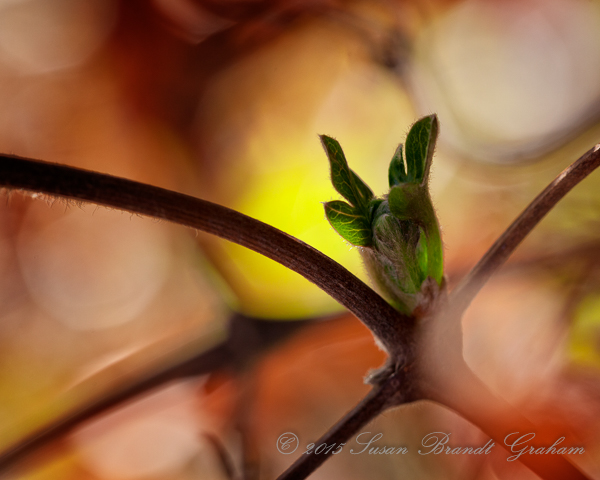
-
Clematis putting on growth in early February
Today and tomorrow are also supposed to be glorious days with highs around 70. I will be out enjoying the weather, and working in the garden to dig weeds and to do general clean-up. I could not ask for better weather. But behind all of that is just a bit of worry that the plants that are responding to the glorious weather now may also respond to cold weather and late freezes that can be part of life in the Southwest Desert. We won’t know if spring is too early until summer has arrived.
Like this:
Like Loading...
